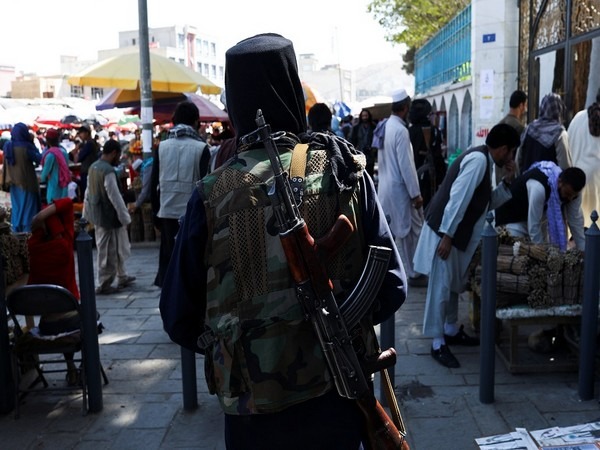Immediately after seizing power nine months ago, the Taliban representatives promised a renewed way of ruling, one that would be devoid of any prejudices or violence against Afghan women. But instead, in a matter of a few months, the male-only interim Taliban government has been seen imposing a series of decrees that have denied even the most basic rights of women such as education and employment obstructing every facet of a woman’s public life.
In fact, for a country that enjoyed a robust free media, the militant group—often citing a fundamentalist interpretation of the Islamic law—has severely curtailed women’s rights to press, freedom of expression, and personal autonomy over a period with female journalists and newscasters paying a heavy price under the new regime. The extremist group has whipped, beaten, and arbitrarily detained journalists since it retook power and has forced many women out of the media, owing to its rising discriminatory practices.
According to a joint survey conducted by media watchdog, Reporters Without Borders (RSF), and the Afghan Independent Journalists Association in December 2021, 84 percent of women journalists and media workers had lost their jobs since August 2021. Another survey carried out by the Afghan National Journalists’ Union in March 2022, found that 79 percent of Afghan women journalists claimed to be insulted and threatened under the Taliban rule, which includes physical and verbal threats by the Taliban representatives. Afghan female broadcasters have also reported being “blacklisted” by the Taliban officials.
The extremist group has whipped, beaten, and arbitrarily detained journalists since it retook power and has forced many women out of the media, owing to its rising discriminatory practices.
This is the case despite the imminent progress achieved by women across Afghanistan’s news, arts, and entertainment industry. The Taliban —very early on—banned Afghan TV channels from broadcasting dramas and soap operas featuring women. It then ordered women to have their heads covered in a veil while presenting on air and released a decree of 11 rules for journalists that required reporters to seek the Taliban’s approval before broadcasting reports, depriving the newscasters of an independent choice regarding the topics that they want to report on.
The Taliban also mandated that women who wanted to travel for more than 45 miles from their homes be accompanied by a male guardian, thereby, making it harder for women reporters to go into the field and travel far distances for news coverage. All these directives combined have presented increasing challenges for female journalists in Afghanistan to do their jobs with the Taliban showing no sign of easing their crackdown.
The Taliban also mandated that women who wanted to travel for more than 45 miles from their homes be accompanied by a male guardian, thereby, making it harder for women reporters to go into the field and travel far distances for news coverage.
Moreover, in their latest series of escalating restrictions, the Taliban’s Ministry of Vice and Virtue decreed that beginning from s21 May, female newscasters and anchors are required to cover their faces while presenting and indicated that a burqa would be the ideal garment to achieve this. While some female anchors briefly refused to comply, they were soon seen presenting the news in face coverings after the militant group ramped up pressure on media companies. The edict has thus, empowered authorities to fire female employees if they fail to follow the dress code and has also put the male employees at a risk of suspension if their female relatives do not follow orders.
For many, the devastating directive has presented yet another step backwards, which could impede the ability of Afghan women from working in the media. This is because, firstly, it is extremely hard for any human being to continue talking for two to three hours consecutively with their face covered. Secondly, female journalists will barely be able to communicate messages to their audiences with clarity while wearing a niqab and having their mouths covered. Thirdly, the decree could have an immense negative psychological impact on female reporters, who might choose to withdraw themselves from the profession altogether.
Female journalists will barely be able to communicate messages to their audiences with clarity while wearing a niqab and having their mouths covered.
The Taliban’s hard-line pivot has nonetheless, confirmed the worst fears of many activists regarding the group’s return to their previous ways of ruling in Afghanistan—1996 to 2001—where women were merely living in a big jail with repressive rules guiding their lives. However, neither the international community nor the Afghan women are silent. Many journalists and rights activists in Afghanistan and across the globe have taken to social media to protest against the Taliban’s recent directive by sharing pictures of themselves in masks using the hashtag #FreeHerFace.
Meanwhile, the international community has refused to formally recognise the Taliban government and made it clear that respecting women’s rights and freedoms will be a key condition for granting the diplomatic legitimacy that Afghanistan’s new rulers seek. Even development funding and unlocking frozen cash depend on the better treatment of women. Thus, if the militant group continues with its repressive tactics against women; strips them of their rights to freedom of expression, as well as personal autonomy and religious belief; and, cease to stop its barbaric attacks against women journalists, it might risk cutting itself off from the rest of the world.

